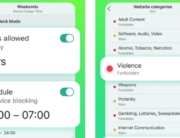you don’t know what’s going to pique the interviewer’s interest, so you desire to consist of as numerous things as possible that might get the conversation going, with a focus on things that show your strengths, and ask follow-up questions that allow you to elaborate to them. It’s basically a small elevator pitch, where what you’re pitching is your self.
Here’s a typical example of how all the above points could come together to create a compelling and response that is effective a hiring manager who’s from Texas and is searching for an ambitious self-starter to enhance their company’s sales:
“I was raised in Texas and then crossed the edge to attend the University of Tulsa for my undergrad. I earned my degree in accounting in three years, and also started my very own company my sophomore year, that we was able to sell when I graduated. I got my MBA through the University of Oklahoma’s business university, and interned with Y Company during that time. I’ve spent the last 5 years doing work for X business, where I happened to be the youngest person ever become made sales supervisor. I helped introduce three hit that is new with their line-up and now have extra sales 5% each 12 months I’ve been here. Personally I think confident i could do the exact same for your business.”
It’s succinct, but covers large amount of ground. Think of all promising follow-up questions the interviewer is now able to ask:
It pays to always understand what you’re going to say before the interview, rehearsing it to yourself a times that are few. By having a small effort, you are able to really obtain the interview off on the right foot.
How exactly to Answer “Tell Me only a Little About Yourself” in a Social Situation
When compared with answering “Tell me personally a little about yourself” in a meeting, creating a response to this query in a situation that is social pretty simple and straightforward.
Just like in the meeting context, you want to keep it brief (again, lower than a minute), while offering up some interesting tidbits that may invite questions that are follow-up. Here you’re maybe not attempting to wow anybody by itself, you’re just providing folks a sense of who you are, about— whether the conversation is going to continue in that moment, or whether they might come up to you after class to ask you about something you said whether you might have things in common, and fodder for things they might talk to you.
Check out plain items that are usually appropriate to say in several situations:
The Very First of Class day:
Where you’re from
The way you chose to attend that university (especially if you’re from out-of-state)
What your major is, or if you’re like, totally undecided
Why you’re taking More hints the class and what you aspire to escape it (professors enjoy hearing this; it is also a question that may convey a lot of your character to your classmates)
An original, funny, and/or random reality about you (you had previously been within the Army and did a trip in Iraq; you drive a PT Cruiser that your aunt offered you and kind of love it; you play a mean harmonica; you as soon as had hair right down to your butt; Bill Clinton kissed you as being a baby at a 1996 campaign rally; you just got house from serving a two-year mission for the church in Brazil). an unique fact can make your classmates laugh, or just allow you to memorable.
Meeting Someone New at a Party/Conference
The main art of tiny talk is not just coming up with things to state your self, but offering up material that means it is possible for people to understand what to say/ask in response. Therefore consider about throwing down a few things that will make other folks need to get to understand more for them to do so about you, while making it as easy as possible.






